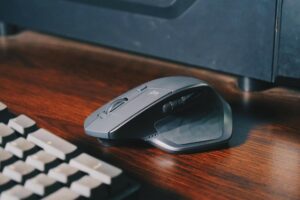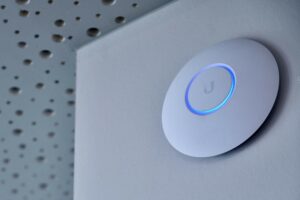Computers are known for their high functionality and accessibility to perform challenging tasks efficiently. But, with time, you might notice a certain decline in the execution of preliminary tasks, like opening a file or even just taking too long to reboot.
And this, of course, can be annoying and hinder your activities or work. The slowing down of your computer can be caused by several factors, from overloading your storage to keeping too many tabs open.
No products found.
This article will walk you through the 7 most common reasons why your computer slows down. Along with this, we have also come up with quick solutions and tips that would help you speed up your device.
With that being said, let’s get started.
The 7 Reasons Why Your Computer Slows Down
Computers are bound to eventually slow down over time as they become bloated with files, viruses, and more. But if your device is not too old, then there might be a few other factors contributing to its poor performance and functionality.
For you to have a better outlook on this, we have compiled some common reasons that can make your computer slow down:
1. Congested Hard Disk Drive
You can store thousands of files and data in a computer, and while that is a great convenience for you, keeping a considerable amount of data/files in your hard disk drive crams up the storage, which can slow down the overall performance of your device.
For instance, if you command your device to search for a particular file, your computer’s RAM or another processing unit can take a lot of time to execute your request because of the congested space in your hard drive.
2. Low RAM
Next up, the RAM capacity of your computer can make a world of difference in providing optimum performance, storage, speed, and more. To put it simply, RAM functions to ensure that all the programs or activities of your devices are achieved effortlessly. However, if you don’t have sufficient RAM, your device’s speed can decline significantly.
So, it is better if you have an understanding of your RAM needs and buy more capacity. Additionally, make sure to clean your storage regularly to get rid of unnecessary programs and cache.
3. Piling Up Software
Most of the time, we tend to install software and programs for some use or out of interest but never end up deleting them. Unfortunately, this can pose a problem for your computer as the applications take up space in your hard drive and can lead to virus attacks.
4. Constant System & Software Updates
Look, we aren’t suggesting you make zero updates to your device, but making too many software upgrades can obstruct your computer’s functionality, leading to slow performance. And as you know, these new software/systems can also lead to virus attacks. So make sure your device has anti-malware software installed to keep it safe and secure.
5. Open Tabs
Each open tab and software takes up a certain amount of space on your RAM. If you have too many of them open simultaneously, your computer’s memory and processing capacity are reduced, making it difficult to transition from one program/tab to the next.
6. Slow Wi-Fi or Internet Speed
Mistakes happen; sometimes, it’s not your computer that is the problem but your Wi-Fi or the internet connection. A slow and poor signal can deteriorate the speed of activities, from website loading to other services.
7. Outdated Device
Lastly, there is a possibility that your computer system is too old to function at its full speed. Also, outdated devices cannot support the latest software, and the obsolete hardware of the device causes your computer to slow down further.
In addition, you must check to ensure your gadget is not running on low power mode as it can affect the speed of your computer’s functions.
What Can You Do to Speed Up a Slow Computer?

You can do a couple of things to fix your slow computer; it can be as simple as restarting your device or clearing your storage. Either way, these tips and tricks can help get your computer up and running.
- First things first, any junk file can slow down your computer. So it’s suggested to remove temporary internet files and unnecessary cache as this can impede the functionality of your device by slowing the applications and taking up space in the hard disk drive.
Moreover, you must remove unwanted files or software on your desktop; this ensures you have enough space available for your device to run essential programs smoothly.
- If you are a Windows user, make sure you delete all the unnecessary background programs, as these files consume considerable space on your hard drive and may run automatically in the background, sapping the CPU and memory.
- Defragmentation of hard disks is another efficient way to ensure your device’s high speed; this feature allows you to combine the vacant space in your file system when you remove/add any file.
In the case that you do not defrag your disk, the ‘vacant’ space will slow down the process of searching or opening any file. Further, you can do this by using various tools that are available.
- Generally, the reason for your computer lagging is mostly an attack from malware software that installs itself in the memory system of your device via various apps/ads, etc. However, you can avoid this altogether by installing anti-malware software and running health scans regularly to prevent these viruses.
- If you face issues like freezing websites and complications in installing software or apps, then your windows system may be the one to blame. Avoid the constant updates on your system or installation of new software, as it can affect the functionality of your computer. Also, these updates can take a long time, so don’t reboot/shut down your device.
- The latest iteration of Windows comes preinstalled with various visual effects like animations, shadow effects, fading menus, etc. While these effects are cool to look at, they can take considerable space in your RAM, so it is better to have these only if your gadget’s RAM is sufficient to support them and all the other functions without deterring its speed.
- Apart from this, the declining speed of your computer can also be caused by any outdated hardware device connected to it. So make sure you keep them clean and in the right environment. Make sure to also track their functions.
- If you have already tried the above-stated solutions to speed up your device and still had no luck, then you can decide to start over and re-install new Windows.
This would mean you would have to delete all the files, uninstall all apps or software and clear all data. The truth is, this is a major step, so you should give this a lot of thought, but it would also come with several benefits like getting rid of system problems, having brand new software, etc.
Bottom Line
There you have it! All the reasons for your computer lagging. Apart from this, you must also keep in mind that if your device is too old, there is nothing you can do to fix it. Instead, you might consider changing your device altogether.
You use the listed tips to speed up your machine, but if you are new to this or are not confident about it, you can always seek professional help.
All in all, you must be sure about the problems your device might be facing as it can save you the trouble of a complex solution.



